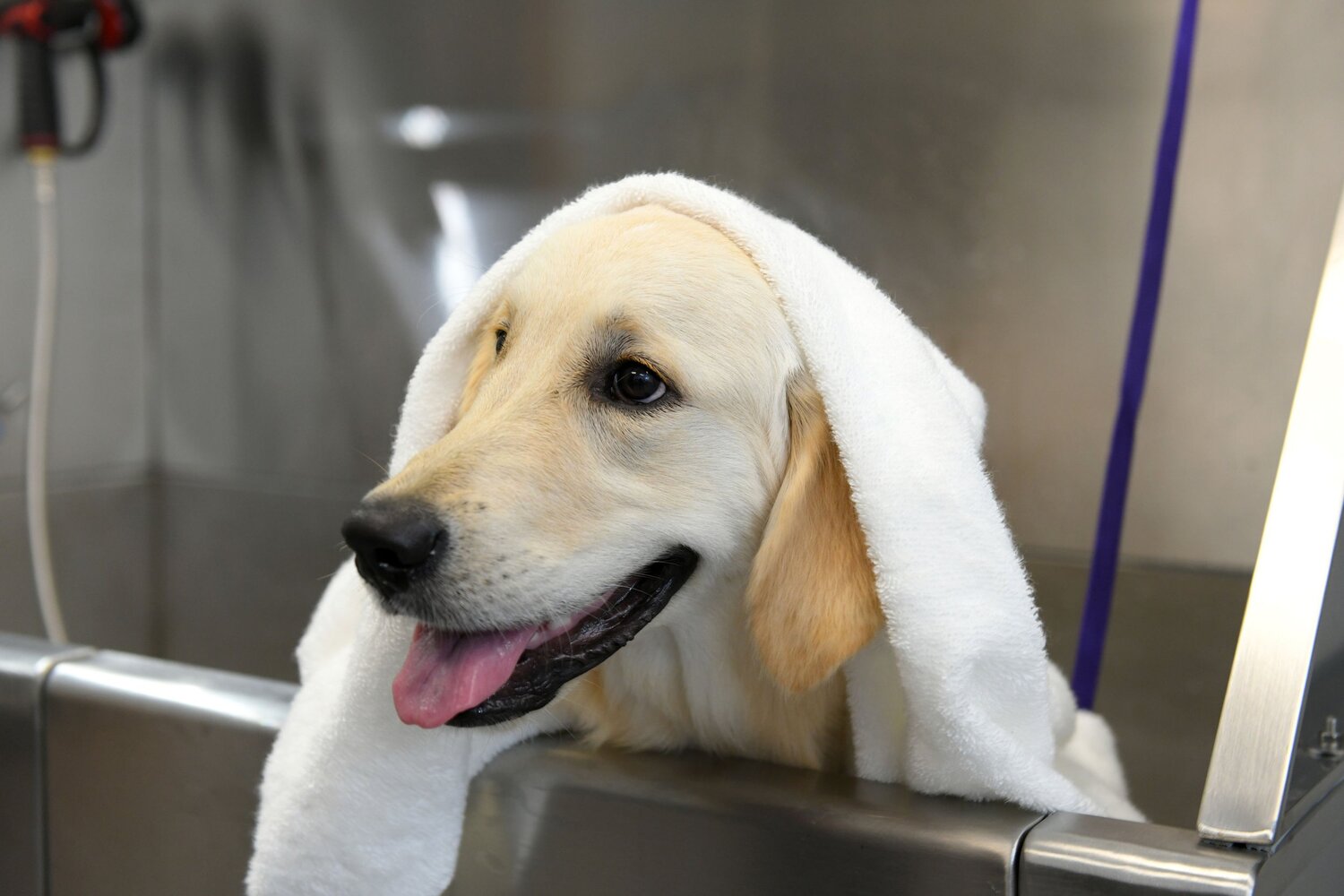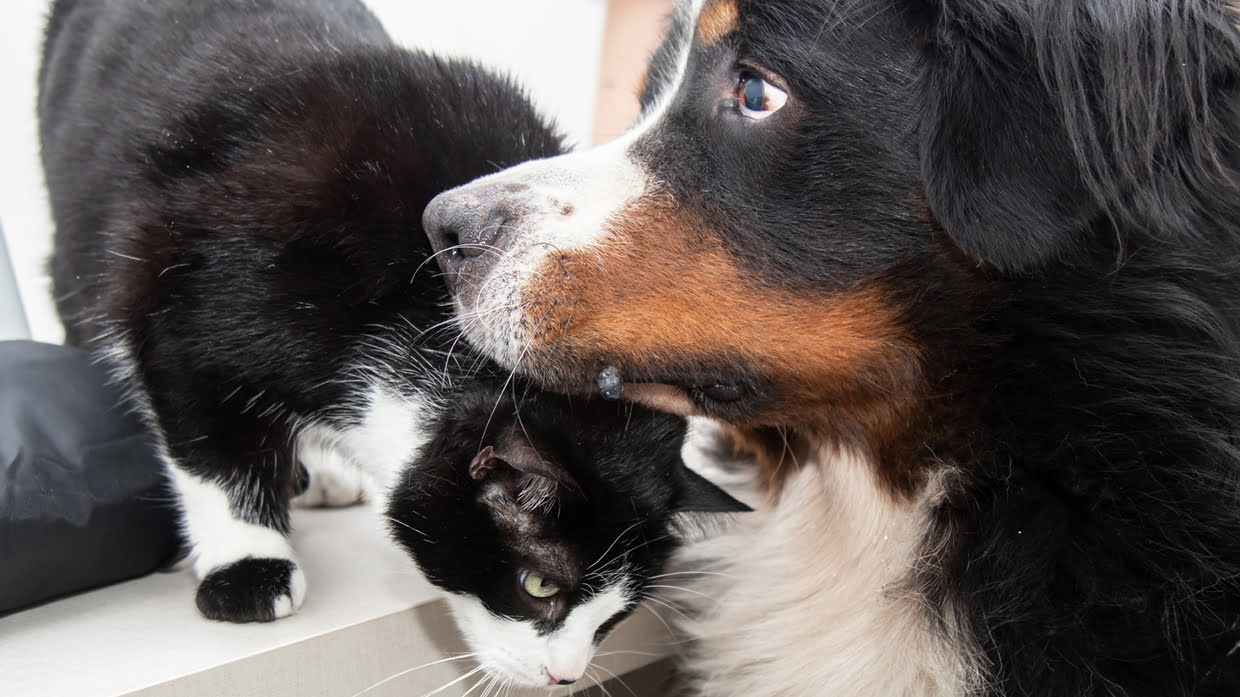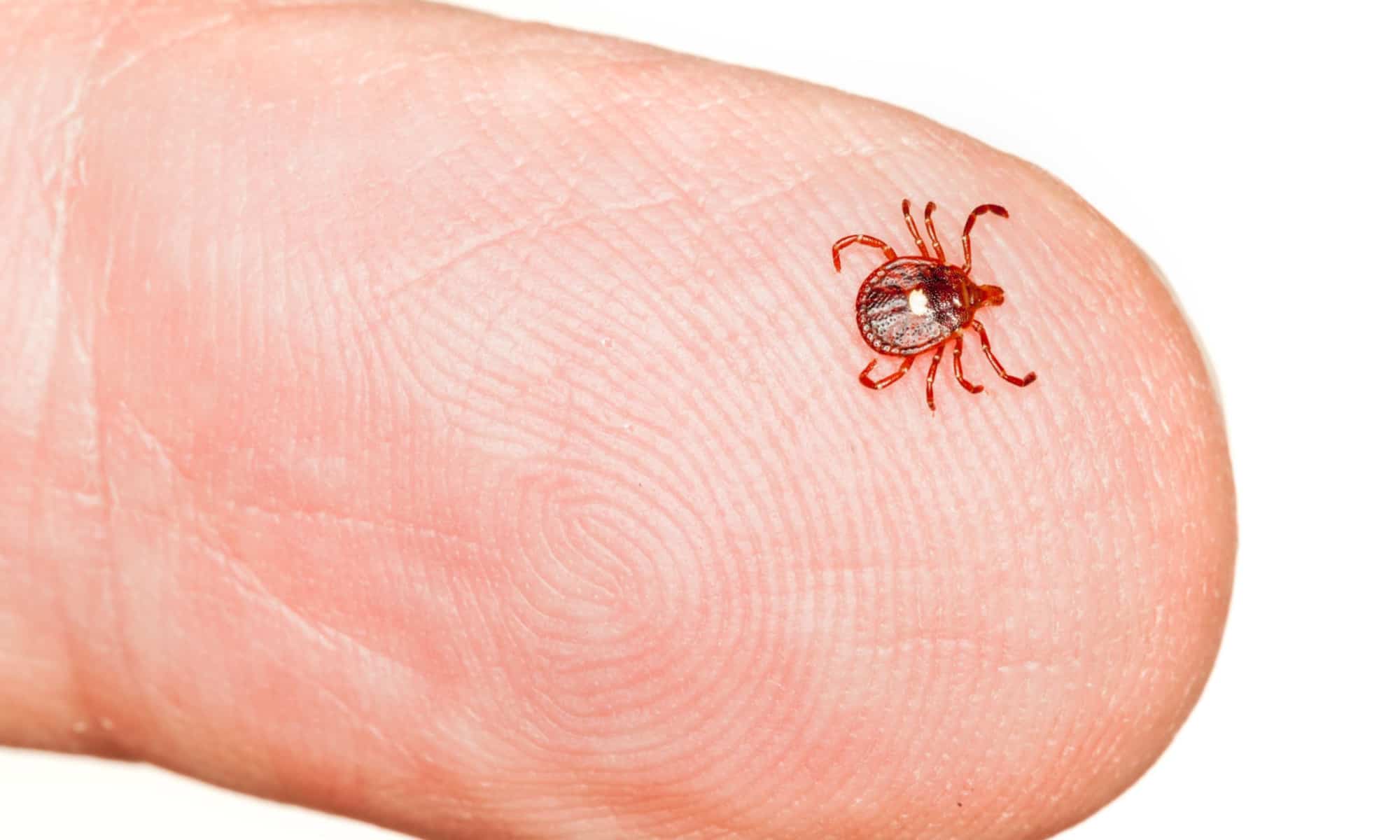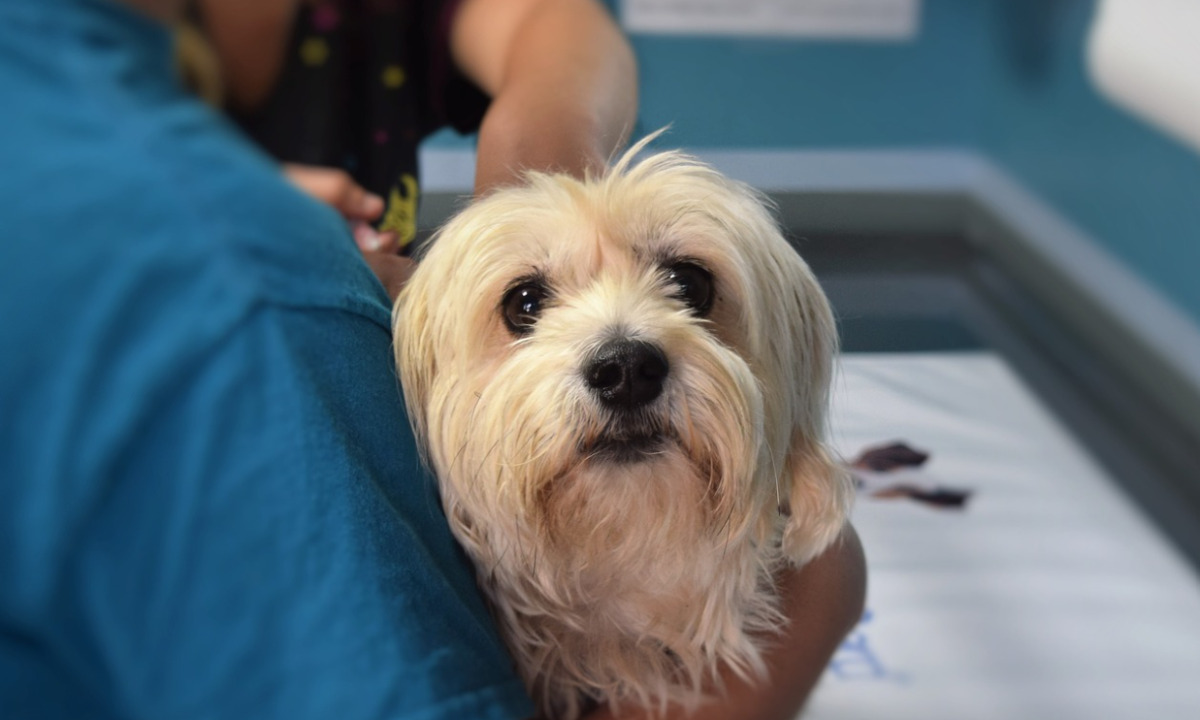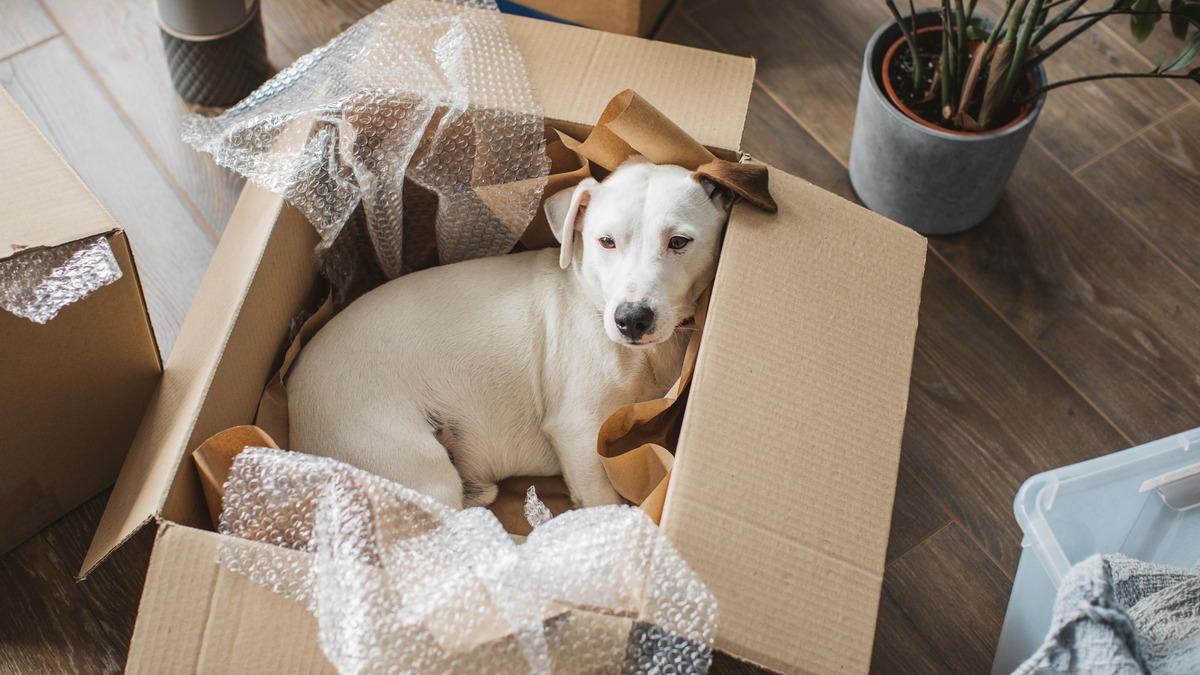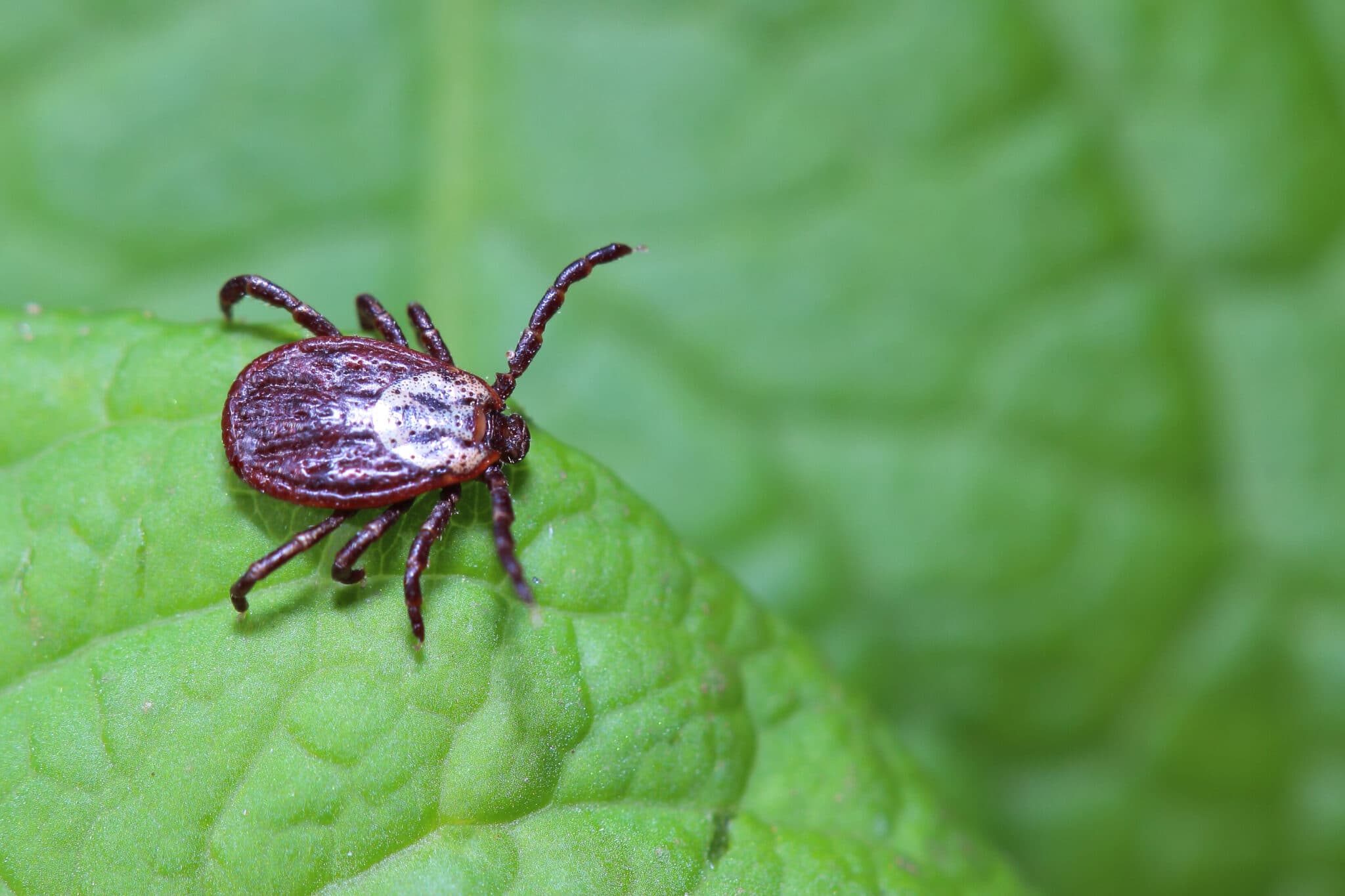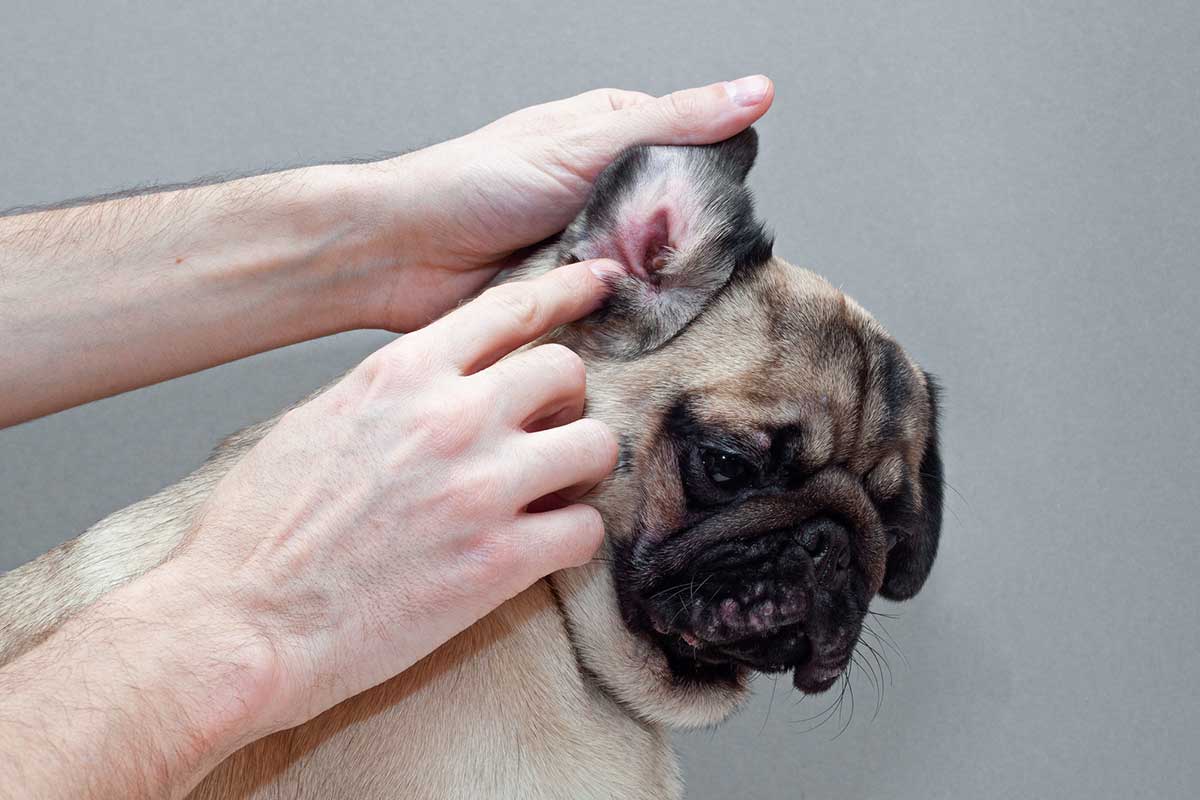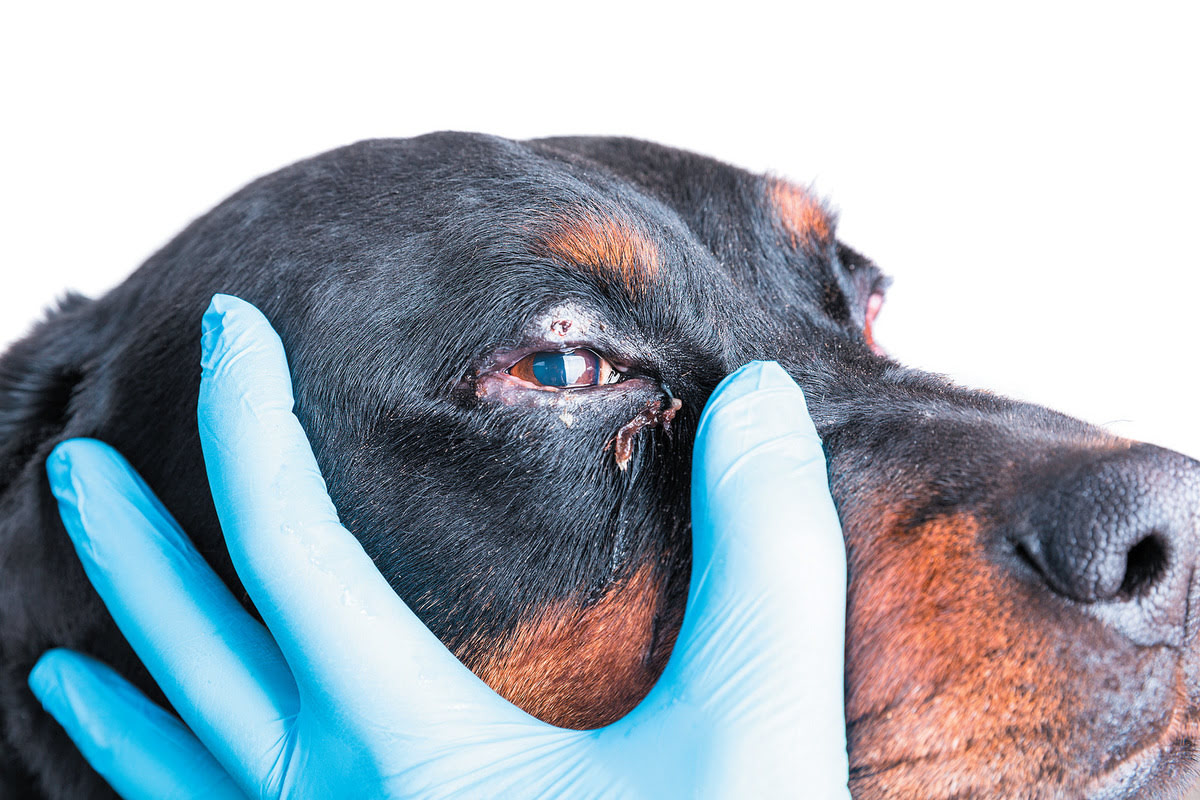Home>Health & Wellness>Common Health Issues>How To Naturally Get Rid Of Fleas From A Dog
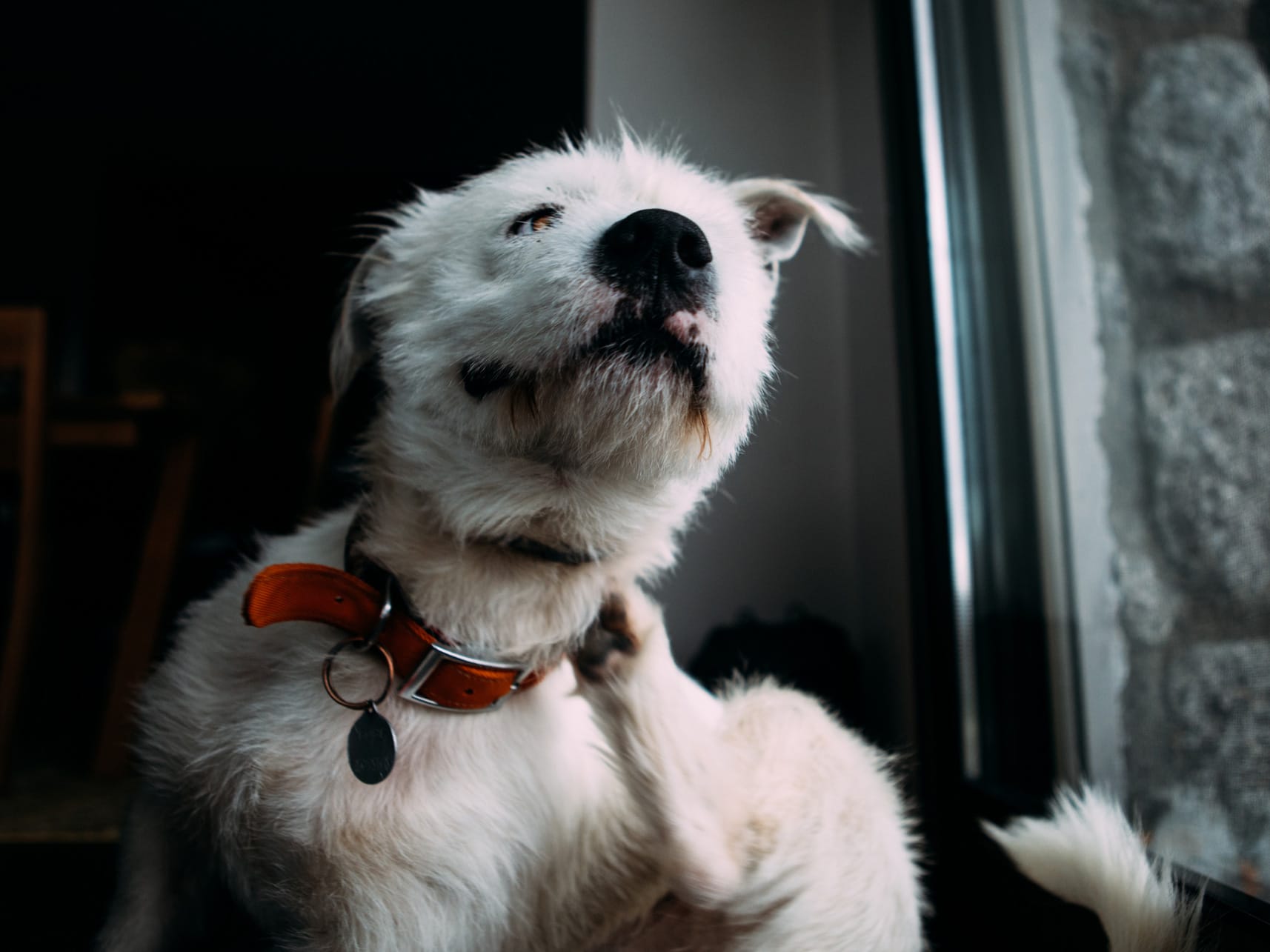

Common Health Issues
How To Naturally Get Rid Of Fleas From A Dog
Modified: February 21, 2024
Learn how to naturally get rid of fleas from your dog and prevent common health issues with our expert tips and advice. Keep your furry friend healthy and happy!
(Many of the links in this article redirect to a specific reviewed product. Your purchase of these products through affiliate links helps to generate commission for Pawsomeoldies.com, at no extra cost. Learn more)
Table of Contents
Introduction
Fleas are a common nuisance for dogs and their owners, causing discomfort and potential health issues for our furry companions. These tiny, wingless parasites thrive by feeding on the blood of animals, and dogs are often their preferred hosts. The presence of fleas can lead to itching, skin irritation, and in severe cases, anemia. As responsible pet owners, it's essential to understand the impact of fleas on dogs and explore effective, natural methods for getting rid of these pesky parasites.
Fleas not only cause physical discomfort for dogs but can also lead to psychological distress. Constant itching and scratching can make dogs anxious and irritable, affecting their overall well-being. Additionally, flea infestations can result in skin infections and allergic reactions, further compromising the health of our beloved pets.
In this article, we will delve into the world of fleas and their impact on dogs, shedding light on the importance of proactive flea prevention and natural remedies for addressing infestations. By exploring the benefits of regular grooming, the use of essential oils and herbs, and dietary changes, we can effectively combat fleas without resorting to harsh chemicals that may pose risks to our pets' health.
Understanding the significance of natural flea control methods is crucial for maintaining the health and happiness of our canine companions. By incorporating these strategies into our pet care routines, we can create a safe and comfortable environment for our dogs, free from the persistent nuisance of fleas. Let's embark on this journey to discover the power of natural solutions in keeping our furry friends flea-free and thriving.
Read more: How To Get Rid Of Fleas In A Dog Pen
Understanding Fleas and Their Impact on Dogs
Fleas are minuscule, wingless parasites that thrive by feeding on the blood of animals, with dogs being a preferred host. These tiny pests are equipped with powerful hind legs, allowing them to jump impressive distances and infest their hosts with remarkable agility. Once they latch onto a dog, fleas can quickly multiply, leading to a full-blown infestation if left unchecked.
The impact of fleas on dogs extends beyond mere annoyance. These persistent parasites cause a range of issues for our canine companions, including incessant itching, skin irritation, and discomfort. Dogs suffering from flea infestations often exhibit restlessness, excessive scratching, and hair loss, which can significantly diminish their quality of life.
In addition to physical discomfort, fleas can also pose serious health risks for dogs. Constant scratching and biting can lead to skin infections, hot spots, and allergic reactions, exacerbating the distress caused by these tiny invaders. Furthermore, severe flea infestations can result in anemia, particularly in young or small dogs, due to the loss of blood from persistent feeding by the fleas.
The psychological impact of fleas on dogs should not be underestimated. The relentless itching and discomfort can lead to anxiety and irritability, affecting the overall well-being of our furry friends. Moreover, the presence of fleas can disrupt the bond between dogs and their owners, as the constant scratching and discomfort may cause dogs to become withdrawn or agitated.
Understanding the detrimental effects of fleas on dogs underscores the importance of proactive flea prevention and effective treatment methods. By gaining insight into the behavior and impact of these parasites, we can take proactive measures to safeguard our dogs' well-being and ensure they lead happy, healthy lives free from the burden of flea infestations.
Natural Methods for Getting Rid of Fleas
When it comes to combating flea infestations in dogs, natural methods offer effective and gentle alternatives to chemical-based treatments. These natural approaches not only target fleas but also promote the overall well-being of our canine companions. By integrating these methods into our pet care routines, we can effectively address flea infestations while minimizing the risks associated with harsh chemicals. Here are some natural strategies for getting rid of fleas from dogs:
Regular Grooming and Cleaning
Regular grooming and cleaning play a pivotal role in flea control. Bathing dogs with a gentle, natural shampoo can help eliminate fleas and soothe irritated skin. Additionally, using a fine-toothed flea comb during grooming sessions can help remove adult fleas and their eggs from the dog's coat. It's essential to focus on areas where fleas are likely to hide, such as around the ears, neck, and tail. Furthermore, washing the dog's bedding and vacuuming the living areas regularly can help eradicate flea eggs and larvae, preventing reinfestation.
Using Essential Oils and Herbs
Certain essential oils and herbs are known for their natural flea-repelling properties. Lavender, peppermint, eucalyptus, and cedarwood essential oils can be diluted and applied to a dog's collar or bedding to deter fleas. These aromatic oils not only repel fleas but also impart a pleasant scent. Additionally, herbal flea collars containing natural ingredients such as citronella and neem can provide a non-toxic alternative to traditional flea collars, effectively repelling fleas without exposing dogs to harmful chemicals.
Read more: How To Get Rid Of Dog Fleas And Lice
Dietary Changes for Flea Prevention
Nutrition plays a crucial role in fortifying a dog's natural defenses against fleas. Incorporating certain foods and supplements into a dog's diet can help repel fleas from the inside out. Adding small amounts of garlic or brewer's yeast to a dog's meals is believed to make their blood less palatable to fleas, reducing the likelihood of infestation. However, it's important to consult with a veterinarian before making any dietary changes to ensure they are safe and appropriate for the dog's individual needs.
By embracing these natural methods for getting rid of fleas, pet owners can effectively combat infestations while prioritizing the well-being of their dogs. These holistic approaches not only target fleas but also contribute to a healthy and harmonious environment for our beloved canine companions. With a proactive and natural approach to flea control, we can ensure that our dogs remain free from the discomfort and health risks associated with flea infestations.
Regular Grooming and Cleaning
Regular grooming and cleaning are fundamental components of a comprehensive flea control regimen for dogs. Bathing your dog with a gentle, natural shampoo not only helps to eliminate existing fleas but also provides relief from skin irritation caused by their bites. When selecting a shampoo, opt for formulations specifically designed for dogs, as human shampoos may contain ingredients that can be harsh on a dog's skin.
During the bathing process, it's essential to thoroughly lather the shampoo and ensure complete coverage of the dog's coat, paying particular attention to areas where fleas are likely to congregate, such as around the ears, neck, and tail. This targeted approach helps to dislodge adult fleas and their eggs, effectively reducing the population on the dog's body.
In addition to bathing, the use of a fine-toothed flea comb is highly beneficial in the fight against fleas. This specialized comb is designed to capture and remove adult fleas, larvae, and eggs from the dog's coat, preventing them from multiplying and causing further infestation. Regular combing sessions not only aid in flea removal but also provide an opportunity to inspect the dog's skin for signs of irritation or allergic reactions.
Furthermore, maintaining a clean living environment is crucial for preventing reinfestation. Washing the dog's bedding in hot water and using a mild, pet-safe detergent helps to eliminate flea eggs and larvae that may be present. Additionally, vacuuming the areas where the dog spends time, such as carpets, rugs, and furniture, can effectively remove flea eggs and larvae, reducing the likelihood of reinfestation.
Consistency is key when it comes to regular grooming and cleaning for flea control. Establishing a routine that includes scheduled bathing, combing, and cleaning of the dog's living spaces is essential for maintaining a flea-free environment. By incorporating these practices into your pet care regimen, you can effectively manage flea infestations and provide your dog with a comfortable and healthy living environment.
In summary, regular grooming and cleaning are integral components of natural flea control for dogs. These proactive measures not only target existing fleas but also contribute to the overall well-being of your canine companion. By prioritizing regular grooming and cleaning as part of your pet care routine, you can effectively combat fleas and create a safe, comfortable environment for your dog.
Using Essential Oils and Herbs
In the realm of natural flea control for dogs, essential oils and herbs emerge as powerful allies in the fight against these persistent parasites. Certain essential oils are renowned for their natural flea-repelling properties, offering a gentle yet effective alternative to chemical-based treatments. By harnessing the aromatic and insect-repelling qualities of essential oils, pet owners can create a protective shield against fleas while enhancing the overall well-being of their canine companions.
Lavender, with its soothing fragrance, not only delights the senses but also serves as a natural flea deterrent. When diluted and applied to a dog's collar or bedding, lavender essential oil acts as a potent repellent, discouraging fleas from taking up residence on the dog's coat. Similarly, peppermint and eucalyptus essential oils, known for their refreshing and invigorating scents, possess natural insect-repelling properties that can help keep fleas at bay. These aromatic oils not only combat fleas but also impart a delightful fragrance, creating a pleasant environment for both dogs and their owners.
Another valuable addition to the natural flea control arsenal is cedarwood essential oil. This woody, earthy oil is revered for its ability to repel fleas and other insects, making it a popular choice for pet-safe flea control solutions. When properly diluted and applied to the dog's collar or bedding, cedarwood essential oil acts as a formidable barrier, deterring fleas from approaching the dog and laying eggs in their fur.
In addition to essential oils, certain herbs offer natural flea-repelling properties that can be harnessed to protect dogs from infestations. Herbal flea collars, infused with natural ingredients such as citronella and neem, provide a non-toxic alternative to traditional flea collars. These herbal formulations effectively repel fleas without exposing dogs to the potential risks associated with chemical-laden products, offering a safe and gentle approach to flea control.
By incorporating essential oils and herbal solutions into a comprehensive flea control regimen, pet owners can effectively combat infestations while prioritizing the well-being of their dogs. These natural alternatives not only target fleas but also contribute to a harmonious and comfortable environment for our beloved canine companions. With the aromatic prowess of essential oils and the protective qualities of herbal formulations, pet owners can embrace a natural, holistic approach to flea control, ensuring that their dogs remain free from the discomfort and health risks associated with flea infestations.
Dietary Changes for Flea Prevention
Dietary adjustments play a pivotal role in fortifying a dog's natural defenses against fleas. By incorporating specific foods and supplements into a dog's diet, pet owners can take proactive measures to repel fleas from the inside out. While it's essential to consult with a veterinarian before implementing any dietary changes, certain natural additions can contribute to a comprehensive flea prevention strategy.
One popular dietary addition for flea prevention is garlic. When used in moderation and under the guidance of a veterinarian, garlic is believed to render a dog's blood less palatable to fleas, thereby reducing the likelihood of infestation. The sulfur compounds present in garlic are thought to create an internal environment that deters fleas, offering a natural and gentle approach to flea prevention.
Another widely recognized supplement for flea control is brewer's yeast. This natural ingredient is rich in B vitamins, particularly thiamine, which is known to produce an odor that is unappealing to fleas. By incorporating small amounts of brewer's yeast into a dog's meals, pet owners can support their efforts to repel fleas while providing valuable nutritional benefits.
It's important to emphasize that dietary changes for flea prevention should be approached with caution and under professional guidance. While certain foods and supplements may offer natural flea-repelling properties, it's crucial to ensure that they are safe and appropriate for the individual dog's needs. Additionally, moderation is key, as excessive consumption of certain ingredients can lead to adverse effects.
By integrating dietary changes into a holistic flea prevention regimen, pet owners can enhance their dogs' natural defenses against fleas while promoting overall health and well-being. These natural dietary additions, when used responsibly and in conjunction with other flea control methods, contribute to a comprehensive approach to keeping dogs free from the discomfort and health risks associated with flea infestations.
Read more: How To Get Rid Of Fleas And Ticks On My Dog
Conclusion
In conclusion, the battle against fleas is a significant aspect of responsible pet ownership, particularly for dog owners. Flea infestations not only cause physical discomfort for dogs but also pose potential health risks and psychological distress. However, by embracing natural methods for getting rid of fleas, pet owners can effectively combat infestations while prioritizing the well-being of their canine companions.
The natural approaches discussed in this article offer gentle yet potent alternatives to chemical-based flea control methods. Regular grooming and cleaning play a pivotal role in flea prevention, providing a proactive means of eliminating fleas and their eggs while maintaining a clean living environment. By incorporating targeted grooming practices and regular cleaning routines, pet owners can effectively manage flea infestations and create a comfortable space for their dogs.
Furthermore, the use of essential oils and herbs presents a holistic approach to flea control, harnessing the aromatic and insect-repelling properties of natural ingredients. Lavender, peppermint, eucalyptus, cedarwood essential oils, and herbal flea collars offer non-toxic alternatives to traditional flea control products, effectively repelling fleas without exposing dogs to harsh chemicals. These natural solutions not only combat fleas but also contribute to a harmonious and pleasant environment for dogs and their owners.
Additionally, dietary changes, when approached with caution and professional guidance, can fortify a dog's natural defenses against fleas. Incorporating ingredients such as garlic and brewer's yeast into a dog's diet offers a natural means of repelling fleas from the inside out, complementing other flea control methods and promoting overall health and well-being.
By integrating these natural methods into their pet care routines, dog owners can create a safe and comfortable environment for their furry companions, free from the persistent nuisance of fleas. Embracing a proactive and natural approach to flea control not only safeguards the health and happiness of dogs but also strengthens the bond between pets and their owners, fostering a harmonious and fulfilling relationship.
In essence, the power of natural solutions in keeping dogs flea-free and thriving cannot be overstated. By understanding the impact of fleas on dogs and embracing natural flea control methods, pet owners can embark on a journey to provide their canine companions with a life free from the discomfort and health risks associated with flea infestations.
